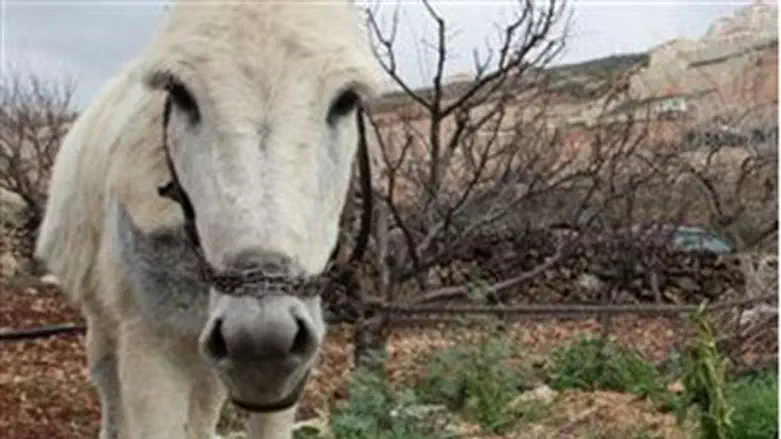
Once an agricultural people, Jews today are mostly urbanites, with most of us having lost the skills needed to work the land. Although after years of not being allowed to own agricultural land in Europe and other parts of the Diaspora, the pioneers who returned to the Land of Israel from around the start of the twentieth century found spiritual gratification in growing fruits in the Holy Land, that is mostly a thing of the past. It's hardly our fault; most people living in modern Western societies have lost those skills as well.
With the move to the cities over the past few centuries, most people, including Jews, lost touch with the land. But at the same time, Jews have also lost touch with something else – the Biblical commandments revolving around the land. The Torah is replete with dozens of laws that involve how to grow crops, what to do with them when they are harvested, when and what to grow where, how to raise animals, and much more.
Most observant Jews will never have an opportunity to fulfill these commandments, unless they take a long leave of absence from their jobs and move to a farm. And, as nearly all these commandments are applicable only in the Land of Israel, many Disapora Jews wouldn't be able to perform them even if they did move to a farm.
As learning farming mid-career is out of the question for most people, an organization called Reishit Ha'aretz provides an excellent alternative. Reishit Ha'aretz has taken upon itself to fulfill all the commandments connected with the land on behalf of members, giving them their best opportunity to fulfill them. Among those commandments are the distribution of tithes to Cohens and Levites, not to plant two types of crops together, not to pick up "leavings" (crops that have fallen in the field, which are rather to be collected by the poor), and many more.
“We exist primarily to fulfill the commandments that most Jews have lost touch with,” organization director Ronen Zer of Beit El told Israel National News. “We have some land of our own and several animals, which we use specifically for fulfilling the commandments, but we also work with other institutions."
For example, the organization recently worked with the Yeshiva of Beit El on the commandment of 'pe'ah,' leaving a corner of a field unharvested in order to enable the needy to pick their own produce. Needy students at the yeshiva participated in the gathering of the crops, thus enabling the members of Reishit Ha'aretz to have a share in the commandment. “All our activities work in this way,” Zer said.
Because they're not commonly done, most Jews don't know specifics of commandments like “gifts to the Cohen” (in which members of the priestly family receive specific parts of an animal after slaughter) or proper disposition of fruits and vegetables given as tithes to Levites and Cohanim. Zer says that the members of his group who perform the commandments study them thoroughly in advance, keeping in mind that they are representing other Jews who are fulfilling their obligations through the performer's actions.
Grandest of all, and among the rarest agricultural commandments, is the commandment to redeem the first-born of a donkey. Generally, first-born kosher animals belong to the Cohen, as does a first-born donkey. However, the owner of the animal can “redeem” the animal by paying a fee to the Cohen, with the amount specified in the Torah. Because of its rarity, the ceremony of redemption of the first-born donkey is celebrated with pomp, and in a recent ceremony conducted by Reishit Ha'aretz in Beit El, says Zer, “we turned it into a major event, with a parade and classes in the significance of the event surrounding the redemption itself."
The organization has recently increased its activity, and is planning to put together a presentation for synagogues around Israel, educating members of communities across the country on the commandments of the land. Meanwhile, Zer says, all those interested in getting involved or taking out a membership are welcome. “We have letters of approbation from many great rabbis, who are enthusiastic about our activities,” says Zer. “We invite anyone who wishes to get involved in fulfilling these commandments to join us as well.”
For more information, click here.